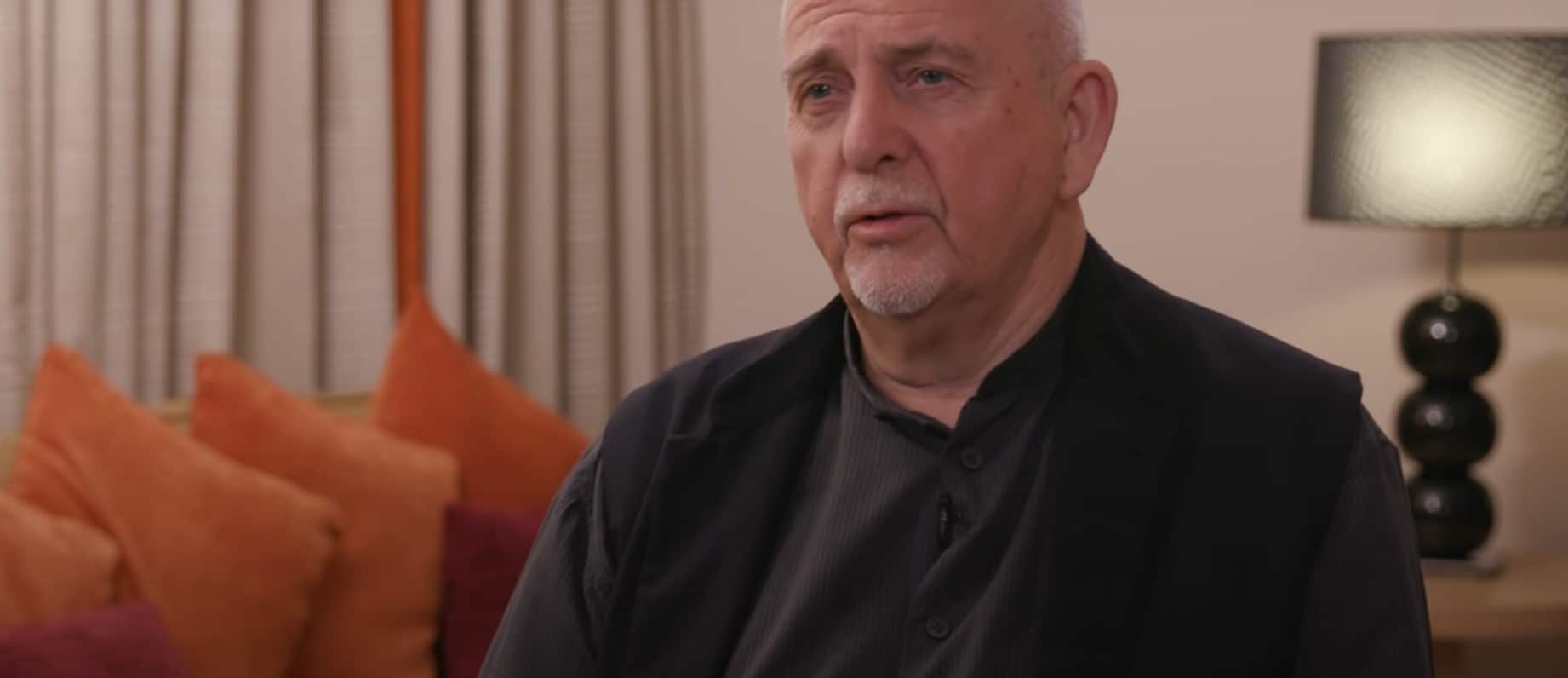From their formation in the late 1960s, the British rock band Genesis quickly made a name for themselves as pioneers of the progressive rock movement. I’m talking about albums like Trespass, Abacab, Foxtrot, and Nursery Cryme, just to name a few.
The early years of the group saw the charismatic —and controversial— frontman Peter Gabriel taking center stage and, together with his bandmates, sculpting their unique sound, identity, and initial success.
However, as the music landscape continued to evolve, so too did the dynamics within the band, ultimately culminating in Gabriel’s decision to part ways with Genesis.
So today, we delve deeper into the factors that influenced Gabriel’s departure from the band, examining the creative differences, commercial pressures, and shifting influence that compelled him to seek pastures new.

When Was Genesis Formed?
Genesis was formed in 1967 by Peter Gabriel, Mike Rutherford, Tony Banks, Anthony Phillips, and Chris Stewart while they were students at the Charterhouse School in Surrey, England. Drawing on eclectic influences such as English folk music, classical composition, and the burgeoning psychedelic rock scene, the young musicians crafted a progressive rock sound that would come to define their early years. Gabriel’s tenure as lead vocalist began with their debut album “From Genesis to Revelation” in 1969.
Why Did Peter Gabriel Leave Genesis?
One of the defining features of Genesis during these formative years was the band’s democratic nature. Decisions were made collectively, allowing each member to contribute their ideas and input to the group’s creative output. This approach played a critical role in establishing the band’s early sound and identity, from Gabriel’s legendary onstage costumes and theatrics to their intricate song structures and complex lyrics.
As Genesis’ popularity grew, the band maintained their collaborative approach throughout the creation of their critically acclaimed early albums, such as “Foxtrot” (1972) and “Selling England by the Pound” (1973). Relying on each other’s talents, they created a striking balance between their ambitious musical explorations and a burgeoning commercial appeal.
Also Read: Sean Penn Net Worth: How Much Is The Actor Worth In 2021?
Falling Off Kilter
However, their collective approach began to falter during the creation of 1974’s concept album “The Lamb Lies Down on Broadway.” Unlike previous efforts, this project saw the band grappling with a shift in decision-making power, with certain members exerting a greater influence over the recording process. This situation left Gabriel feeling compelled to participate in aspects of the album with which he disagreed or was uncomfortable.
Compounding this dissatisfaction was Gabriel’s growing artistic vision and desire to explore new musical territories. At a time when punk and new wave were gaining traction, progressive rock was beginning to be perceived as stale and ponderous; and Gabriel, never one to shy away from innovation, felt a growing urge to experiment with new sounds, styles, and lyrical themes.
So He Left
These creative differences, combined with the mounting commercial pressures faced by the band, led to increasing tensions between Gabriel and his fellow band members. As these tensions escalated, Gabriel found himself at a crossroads: either compromise his artistic integrity or forge a new path on his own terms.
Ultimately deciding that he “didn’t want to be told what to do,” Gabriel made the difficult choice to leave Genesis in 1975. His departure marked the end of an era for the band, as they began to transition towards a leaner, more streamlined sound under the guidance of new lead vocalist Phil Collins.

Peter Gabriel After Genesis
Gabriel’s post-Genesis career has been marked by numerous successful solo albums and notable projects, including the groundbreaking “So” (1986), which spawned hit singles such as “Sledgehammer” and “In Your Eyes.”
He has also become a passionate advocate for social justice, establishing the WITNESS organization in 1992 to help document human rights abuses around the world.
The departure of Peter Gabriel from Genesis was an event that changed not only the band but music history itself. His impact on progressive rock cannot be overstated, and his legacy lives on in both the groundbreaking music he created with Genesis and his influential solo career.
As such, it is easy to understand why Gabriel’s time as frontman of one of Britain’s most beloved bands continues to hold a special place in the hearts of many fans around the world.
Also Read: Laurie Anderson’s Net Worth: How Much Does She Make Now?





